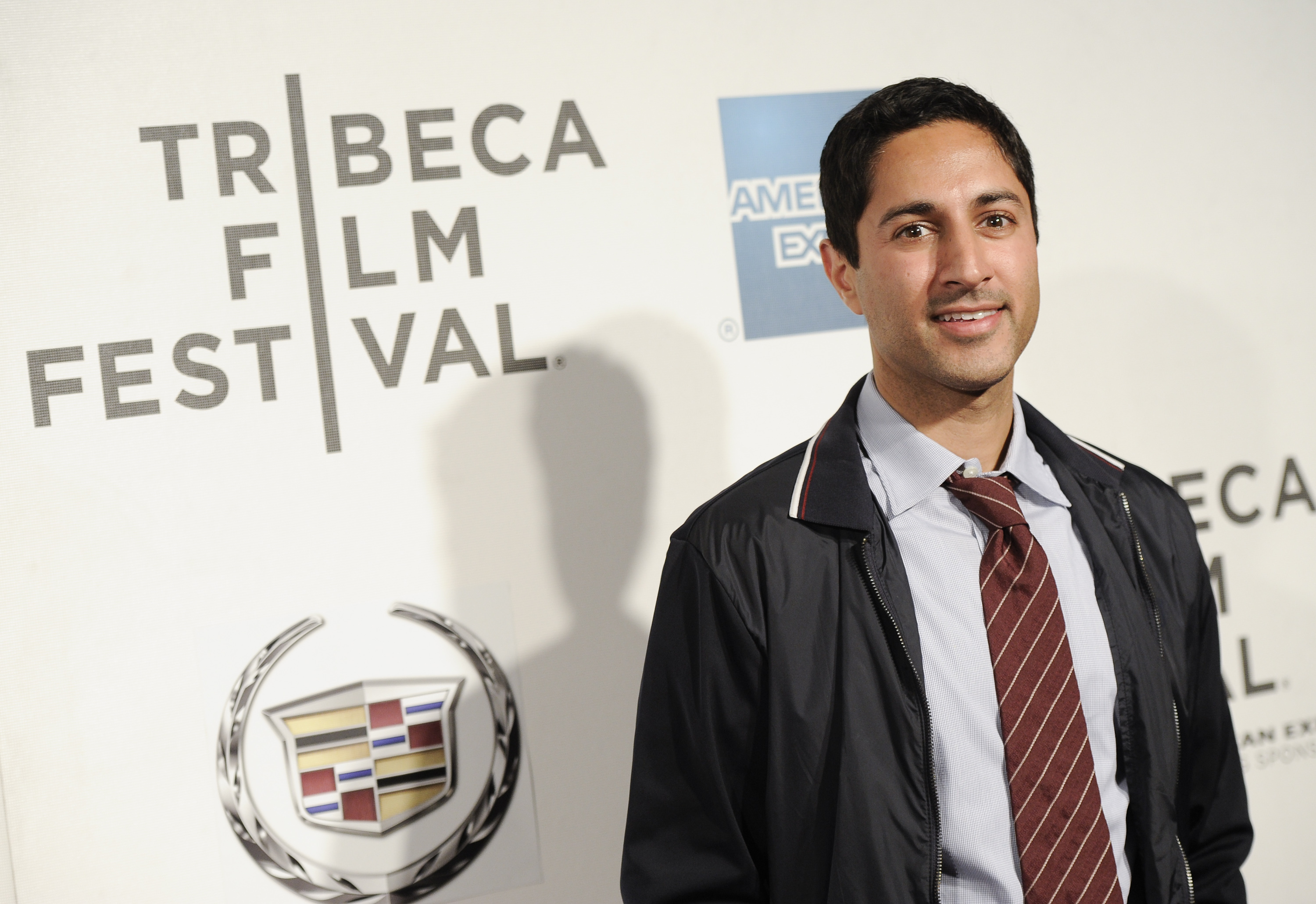The Japanese master of whimsical animation, Hayao Miyazaki, has retired before. This time, he says he really means it.
Miyazaki is one of animation's most admired and successful directors. He said Friday that at the age of 72, he now wants to do other things besides slaving away over his drawings to meet feature film deadlines.
"I know I've said I would retire many times in the past. Many of you must think, 'Once again.' But this time I am quite serious," he said.
"This will never happen again," Miyazaki said at the conclusion of a nearly 2-hour-long news conference in which he shared his thoughts on everything from war to Italian cuisine, one of his favorites.
The co-founder of Studio Ghibli, who won an Oscar in 2003 for his masterful, disturbing critique of modern industrialism in "Spirited Away," said he hopes to work for another decade, but at a slower pace that might allow him to perhaps even take Saturdays off.
Miyazaki's studio announced last week that he will stop making feature films following the release in June of his last film, "The Wind Rises."
Among other things, he plans to work on his Ghibli Museum, where he says the exhibits need refreshing.
U.S. & World
"I might even become an exhibit myself," he said.
Miyazaki said he had nothing all that "cool" to say to his younger audiences. But of all his works, he especially treasures "Howl's Moving Castle," in which he sought to turn a virtual game world into drama.
"I wanted to convey the message to children that this life is worth living," he said. "This message has not changed."
While avoiding the limelight, Miyazaki hasn't shied away from controversy. In the past few months, his outspoken opposition to efforts to revise Japan's pacifist constitution has drawn fire from rightists who favor a higher profile for the military.
Miyazaki's heartfelt aversion to war is nothing new: He stayed away from the Academy Awards ceremony where "Spirited Away" won an Oscar for Best Animated Feature Film, saying he found it hard to celebrate "because of the deeply sad events taking place in the world" — a reference to the war in Iraq.
"The Wind Rises," Miyazaki's 11th feature film, is a fantasy-filled, fictionalized tale about the man who designed Japan's World War II fighter planes.
Miyazaki's adoration of flying and flying machines clashes with his disgust over war making, casting protagonist Jiro Horikoshi in an ambivalent but sympathetic light. The animator's own father managed a factory making war plane parts during the war.
Miyazaki's own career is emblematic of the combination of whimsy and passion combined with pragmatism that characterized many post-war Japanese success stories.
It also centers on grueling hard work: Miyazaki has mostly eschewed computer graphics for painstakingly hand-drawn animation.
"You may wonder what we animation directors do, but I'm an animator first, and I have to draw. I have to take off my glasses like this..." he said, bending forward as if he was working at his desk. "It's quite strenuous."
Miyazaki said he can no longer work 12- to 14-hour days; about seven hours is his limit, and delegating the work to others is just not his style.
"If I could have, I would have done that. But that's not how I work," he said. "I have to put the pencil down and just go home," he said.
"You just can't do anything about those problems resulting from aging," he said.
Toshio Suzuki, Studio Ghibli producer and chairman, said the decision was a joint one.
"There's an end to everything," he said. "It's best not to wait to retire when one is already in a decline."
Miyazaki's success has helped keep Japan one of the world's biggest markets for animation. His sale of worldwide distribution rights for Studio Ghibli's works to Walt Disney Studios in 1996 helped win him a global audience.
One of the first to be distributed through that arrangement was "Princess Mononoke — The Phantom Princess," a 1997 film set in the 14th century about a girl raised by wolves that carried one of Miyazaki's signature messages, the need to live in harmony with nature.
Miyazaki's rustic sensibilities differ markedly those of futuristic anime contemporaries like Osamu Tezuka, whose Astro Boy is a 1.35-meter (4-foot, 6-inch) robot with the heart of a little boy, built by a tormented scientist whose son died in a car accident.
Miyazaki films generally portray a fantasy world in which technology is eclipsed by mysticism and nature. In "My Neighbor Tottoro," his exquisitely detailed animation brought to life the beauty and mystery of the Japanese countryside, with its deep, dark forests and brilliant green rice paddies.
"The Wind Rises" begins with a compelling portrayal of the destruction and infernos set off by the 1926 Great Kanto Earthquake.
But much of his work is other-worldly: in announcing a Golden Lion for lifetime achievement award for Miyazaki in in 2005 the then-director of the Venice Film Festival, Marco Mueller, said Miyazaki was "a giant who blew down the walls in which Japanese animated cinema wanted to pigeonhole itself."
Commenting by email on Miyazaki's retirement, Mueller said Friday that he believes the Ghibli legacy will be carried on by its younger artists.
"One thing is certain: the adventures of Miyazaki's Wonderland will never end," Mueller said.
In "Spirited Away," which also won the Berlin Film Festival's Golden Bear award, 10-year-old Chihiro wanders away from her parents while on an outing and gets trapped in a fantastical water world of goblins, ogres and gods.
Chihiro ends up working for a witch who runs a bathhouse for those otherworldly creatures and is horrified to find her parents transformed by a magic spell into pigs — creatures that seem to have a special fascination for Miyazaki.
The future direction of Studio Ghibli, which Miyazaki founded with his producer Isao Takahata in 1985, will be up to the younger staff, Miyazaki said.
"I've always wanted to do something besides animation," he said. "There are so many things I want to do."
"My idea of rest may not be the same as what others would think of. I think just lying around would be tiring."



